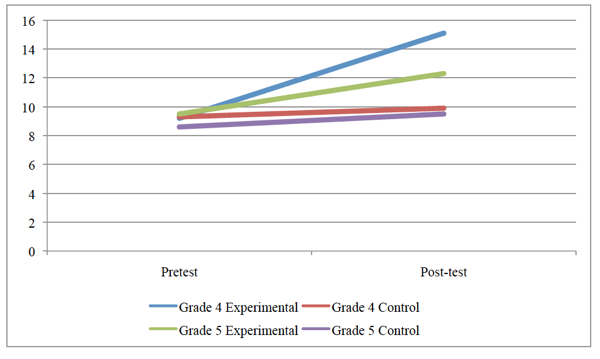“Mathematics achievement of Native American students is the lowest of all racial and ethnic groups, a disadvantage that is evident by the fourth grade. Students living on American Indian reservations, which are located in rural persistent poverty counties, perform even below the national average for Native Americans.”
-Dr. AnnMaria De Mars
Dakota Learning: Computer-Assisted Mathematics Instruction In A Cultural Context
The Dakota Learning Project: The Pilot Study
Fourth- and fifth- grade students from two North Dakota schools in the same rural community took initial, unbiased math tests (multiplication and division facts of varying levels) to submit initial data for Dr. AnnMaria DeMars, statistician, to record and track.
The students selected for the study were recorded as having under-performed on their grade level math tests. Dr. De Mars set up math tests that closely aligned with North Dakota state standards for the scope of the pilot experiment.
The study began. The two grades began playing 7 Generation Games apps at school to boost math knowledge over eight weeks. 7 Generation Games supplied teachers with downloadable presentations and student study guides to support student learning outcomes.
After the eight weeks were up, the two grades of students were tested a second time to track any changes in math ability.
Findings
- Students who had played 7 Generation Games math apps for an average of 30 minutes, twice a week, improved their math scores by 50%.
- Students in the two control groups who played the games less frequently improved math scores by 10%.

Critique
“These scores improved 50%. Why does your game marketing advertise ‘over 30% improvement’?”
Dr. De Mars has since replicated these results with larger samples in similar communities.
Not every school showed the dramatic improvement of the pilot study (due to factors like teacher curriculum scheduling–some teachers doubled down on relevant math content with their students more often during the experiment–the testing environment, and so on).
However, the average improvement is around 30%, which is still significantly higher than the control groups.
Moving Forward
If students can demonstrate improvement using educational math games, then by all means, they are necessary for future academic success.
Teacher Feedback
Teachers reported that their students exhibited a marked increase in motivation and effort for math, which are proven factors–in addition to time spent studying–for improving math skills. The site coordinator felt it was an important factor to consider including in the final report because it spelled out a window to reaching more learners, especially those with extra difficulties.
Teachers also reported zero behavior issues during the video game learning sessions. Students wanted to play! If learning math is fun with the addition of games, previous anxieties and preconceptions are likelier to melt away with further exposure to math, in addition to time and practice.
For more awesome content like this, sign up for our newsletter
Reports and Updates
Dakota Learning: Computer-Assisted Mathematics Instruction In A Cultural Context – Report of our pilot study of “Spirit Lake: The Game” for the US Department of Agriculture. The study was funded by the US Dept. of Agriculture and the Small Business Innovation Research program.
Results from our first pilot – Blog post by The Julia Group about this experiment.
The value of perseverance: Using Dakota culture to teach mathematics – 2018 essay by Dr. De Mars and Dr. Erich Longie, published in Transmotion, 4 (2), 113-131.
Excerpt:
“Spirit Lake: The Game is an example of how the value of perseverance in the context of traditional Native American culture can be applied in contemporary society. Efficacy of the game in increasing mathematics achievement was tested with a sample of fourth- and fifth-grade students from two reservation schools. Students playing the game showed significantly greater improvement in mathematics achievement from pre- to post-test.”
How we know an intervention works: Program evaluation by example – Data in the experiment was also evaluated using SAS.
Yes, PROC FREQ does that! – Report on “PROC FREQ,” the tool used to evaluate the Dakota Math research project. Item difficulties and other psychometric data, pre- and post-test results for Fish Lake were presented at the 2015 Western Users of SAS Software conference.
